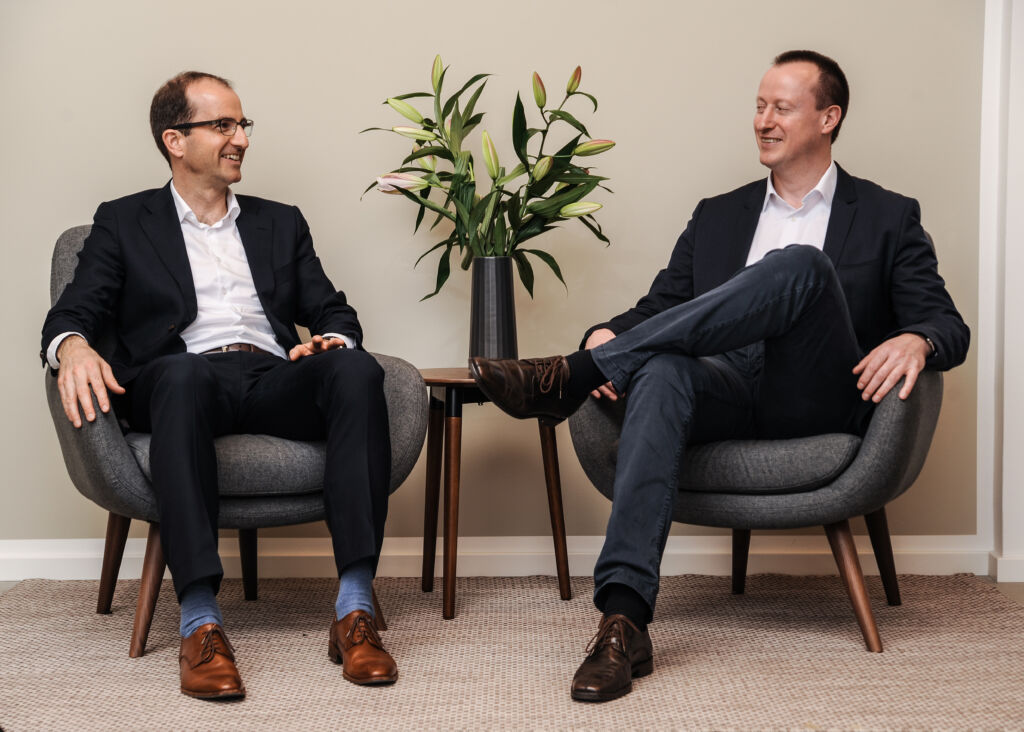How it all began – 10 years of acondas: Interview with the founders – Part 1
Ten years ago, Andreas Florissen and Jörg Fengler founded acondas. In this series, we talk to them about what they’ve experienced during this autonomous period, how acondas has evolved over time, and what their vision is for their company.
Hello to you both! Why don’t you start by telling us how you met?
Jörg: It was in 1998 at an alumni event for McKinsey interns. After that, we met again when we started working in McKinsey’s Düsseldorf office in mid 1999.
Andreas: We met again and again on Office Fridays and a lot privately as well. Jörg moved to E.ON/Ruhrgas a few years before me, and in 2009 a colleague who was in charge of setting up in-house consulting at E.ON asked me if I would also like to become part of the management team.
Was it always clear to you that you wanted to work in consulting?
Jörg: I worked as a student trainee in a large corporation for almost the entire time I was studying. At the time, I thought there had to be more variety. Then I did an internship at McKinsey and from then on it was clear to me: that’s what I want to do. Working on projects, ideally also as a generalist, i.e., across industries, is extremely exciting. You can create a lot of value and always see new things, meet new people, face new challenges, there’s always new knowledge to be gained – I think I’ll probably stay a consultant now (smiles).
And for you, Andreas?
Andreas: As a rule, consulting is not the kind of profession you want to have as a young child. But consulting offers many opportunities to learn, especially for university graduates. This post-university training is phenomenal. Nowhere do you learn as much, as quickly, and as diversely as in consulting. At the same time, it’s a stepping stone to later corporate careers because as a consultant you get to know many companies, many industries, many disciplines.
I envy the students who already know when they take their exams that they want to become auditors or tax consultants or whatever. The vast majority of students don’t know. I didn’t know either. That’s exactly why consulting is a good field for orientation and training. It’s also good for career changers who may have already started at a company and realize after two years: Is this really what I want to do until I retire?
I can only recommend that everyone try out consulting at some stage of their career. Some, like us, end up staying because they discover their passion, while others switch after a while. Everyone I’ve met so far has had an exciting career and has been able to use it as a good springboard.

And how did the idea of founding acondas come about?
Andreas: There wasn’t anyone offering a pure focus on implementation. The vast majority of consultancies are large consulting groups that offer a very broad spectrum or very specialized companies that focus on one industry or functional topic, or there are many freelancers, but just not a consultancy dedicated to implementation topics.
Jörg: Offering implementation consulting with the highest quality standards across companies is, firstly, much more exciting for employees because they get to know different companies and industries and, secondly, it helps the customers a lot because there is a gap in the market and there is always a lack of implementation capacity. Building on that idea, we came up with some business plan ideas very early on.
Andreas: And then we tried it out: We left the E.ON Group, founded acondas, and the response in the first months and years proved us right.
Read more about the change at acondas over the past 10 years in part two of the interview next week.
